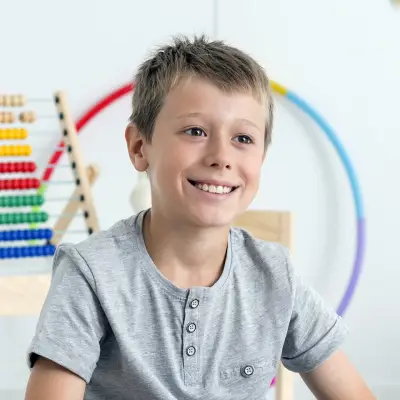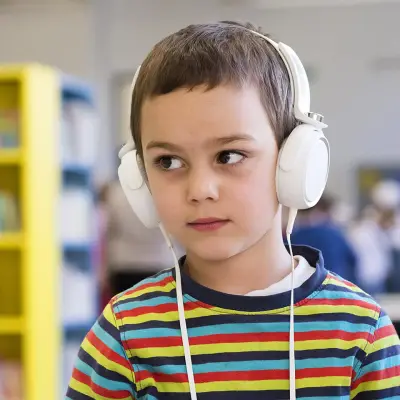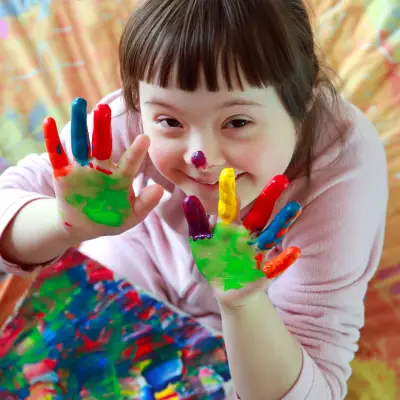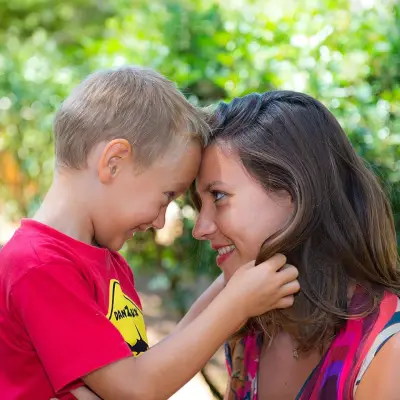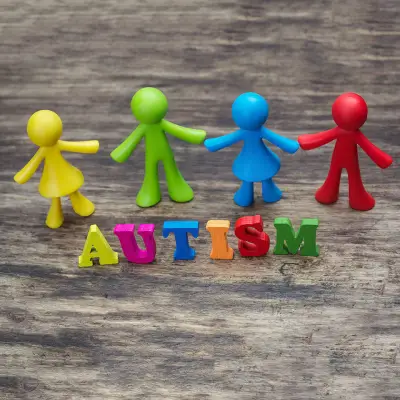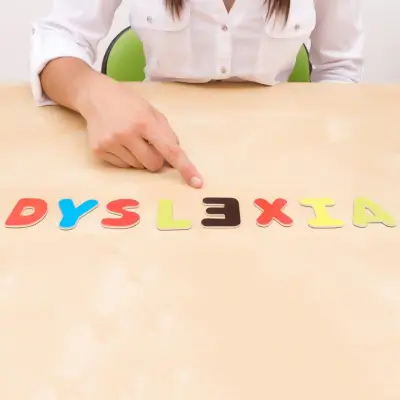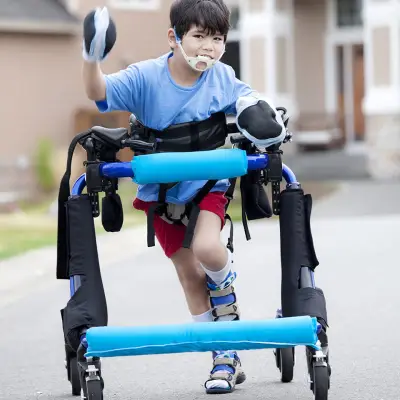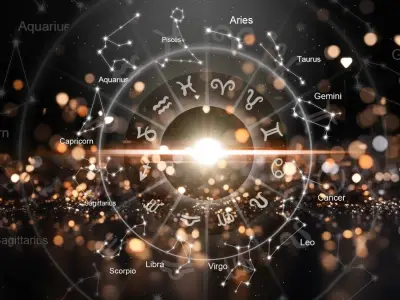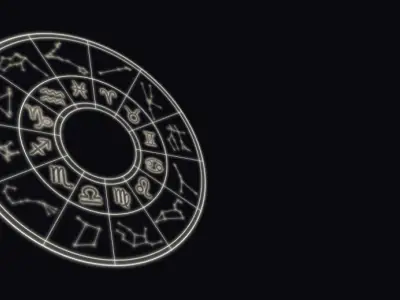Recognising early signs of autism can be a fundamental step in providing the support and resources necessary for individuals with autism to thrive. This article aims to shed light on the early signs of autism, offering insight and understanding for those observing these signs in young children.
Jump to:
What is Autism?
Autism, formally known as Autism Spectrum Disorder (ASD), is a complex, multi-faceted neurological and developmental condition that typically appears during early childhood and can affect a person's social skills, communication, relationships, and self-regulation. It is called a "spectrum" disorder because it varies widely in severity and impact. Every individual with autism is unique and may possess different strengths and challenges.
What Age Does Autism Show?
Autism can manifest at various stages in early childhood. While every child is unique, autism typically becomes noticeable in the first two years of life. However, some signs might appear as early as a few months old. The developmental milestones during these early years are crucial in spotting the early signs of autism.

What are the First Signs of Autism?
Autism Spectrum Disorder (ASD) manifests in various ways, and its signs can be subtle in the beginning. Here's a more detailed look at these early indicators:
1. Social Interaction Challenges
Children with autism often display distinct characteristics in social settings:
- Limited Eye Contact: They may avoid eye contact or have difficulty maintaining it; this is often one of the earliest signs noticed.
- Minimal Response to Social Cues: This includes not responding to their name or failing to turn their head when someone speaks to them or points at something.
- Preference for Solitude: They might show less interest in playing with other children or participating in group activities.
- Challenges in Sharing Experiences: Difficulty sharing enjoyment, interests, or achievements with others.
2. Communication Difficulties
Communication is a significant area affected by autism:
- Delayed Speech: A noticeable speech delay is common. Some children with autism may not speak at all.
- Echolalia: Repeating words or phrases said by others, either immediately or later, is common.
- Difficulty in Expressive and Receptive Language: Challenges in expressing needs or understanding what others say.
- Unusual Tone or Rhythm of Speech: Speech might be monotone, high-pitched, or sing-song.
3. Repetitive Behaviours and Routines
Repetitive behaviours are a common trait of autism:
- Ritualistic Behaviours: Insistence on sameness and routines. Any change can lead to significant distress.
- Repetitive Movements: This includes hand-flapping, rocking, or spinning.
- Intense Interests: Extremely interested in specific topics or objects.
4. Sensory Sensitivity
Many children with autism have unusual reactions to sensory experiences:
- Over- or Under-Sensitivity: This can be to lights, sounds, touch, tastes, and smells.
- Sensory Seeking Behaviours: Fascination with lights, spinning objects, or textured materials.
5. Potty Training Challenges
Potty training with autism can be uniquely challenging:
- Delayed Training: Children with autism may take longer to be potty trained.
- Sensory Issues: Discomfort with the sensations related to using the toilet.
- Routine Dependency: Difficulty in adopting the new routine of using the toilet.
6. Additional Early Signs
Other signs that may indicate autism include:
- Lack of Imitation: Limited mimicking of gestures or facial expressions.
- Unusual Eating Habits: Strict preferences or aversions to certain foods, possibly related to texture or colour.
- Sleep Difficulties: Trouble with falling or staying asleep.
It's important to remember that these signs can vary greatly from one child to another. Not all children with autism will show all signs, and some might display them differently. If you notice several of these signs in a child, especially if they persist or there are multiple concerns, consult a healthcare professional for an evaluation.
Early identification and intervention can make a substantial difference in helping children with autism develop to their full potential. Understanding these signs is a step toward creating supportive environments where autistic children can thrive.
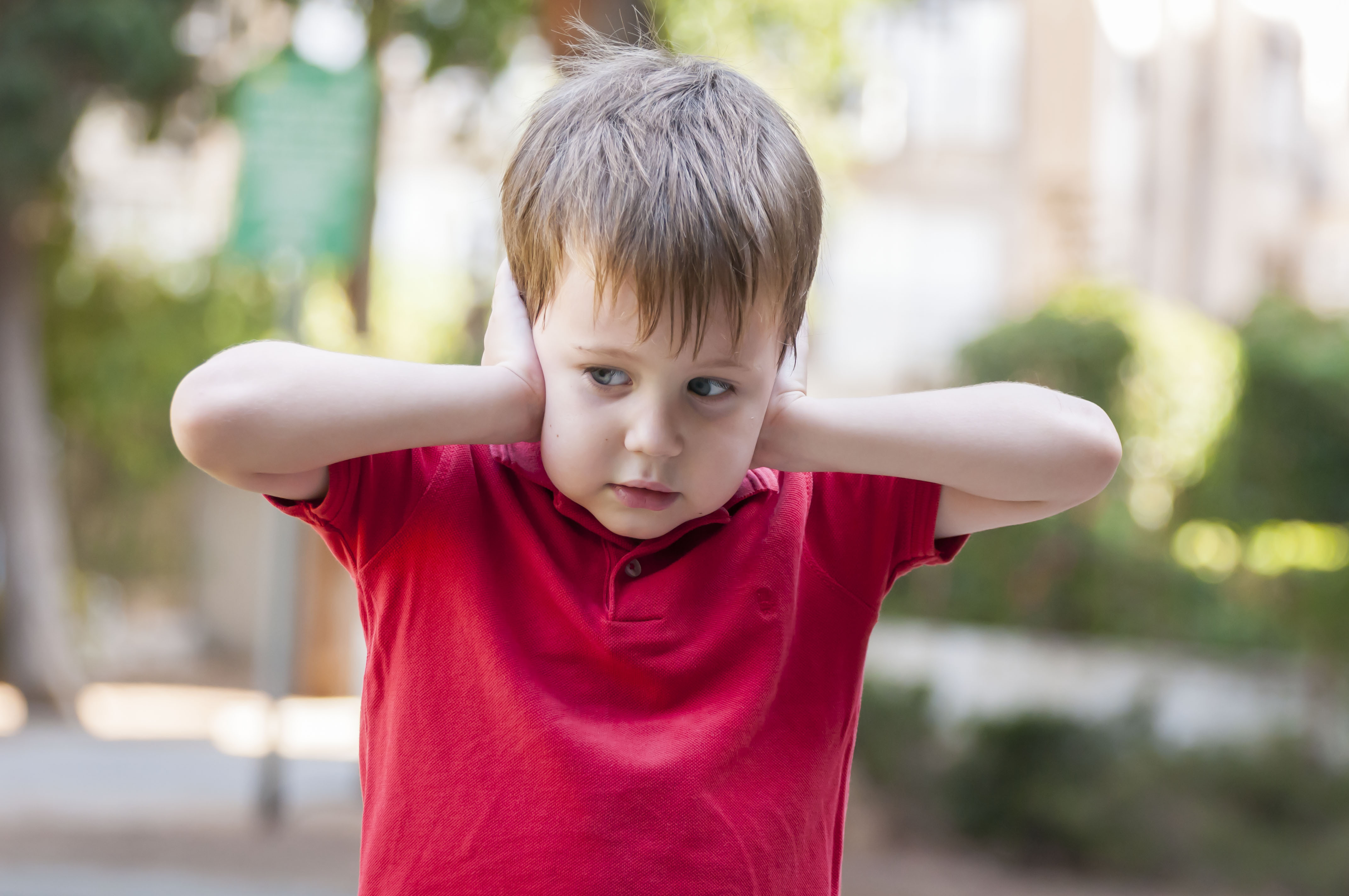
Signs of Autism in Toddlers
As children reach toddler age, certain signs of autism become more apparent. These might include:
- Difficulty with Joint Attention: Struggling to share a focus on an object or activity with someone else.
- Unusual Play Patterns: Playing with toys in atypical ways, such as lining them up or focusing on parts of the toy.
- Reduced Responsiveness: Not responding to their name or familiar voices.
- Lack of Gesturing: Limited use of gestures like waving goodbye, pointing, or showing.
- Inconsistent Eye Contact: Avoiding eye contact or staring intensely at people or objects.
- Limited Emotional Expression: Not showing a wide range of emotions; may have difficulty understanding or expressing emotions.
- Repetitive Use of Objects: Spinning wheels of a toy car repetitively rather than playing with it as intended.
- Sensitivity to Changes in Environment: Becoming upset with minor changes in the surroundings or routine.
- Delayed Language Skills: Not speaking as many words as peers or having a noticeable lag in language development.
- Preoccupation with Specific Topics or Objects: Intense focus on subjects or items to the exclusion of others.
- Physical Overactivity or Underactivity: May be extremely active or significantly less active than other toddlers.
- Unusual Reactions to Sensory Experiences: Either overreacting or underreacting to sounds, textures, tastes, or lights.
- Disinterest in Social Games: Lack of interest in social activities like peek-a-boo or other interactive games.
What Age Is Autism Diagnosed?
Most children with autism are diagnosed after age 2, although a diagnosis can be made earlier in some cases. Early diagnosis can be beneficial in starting interventions and support sooner.
Autism Diagnostic Criteria
Autism Spectrum Disorder (ASD) is diagnosed based on criteria outlined in diagnostic manuals such as the Diagnostic and Statistical Manual of Mental Disorders (DSM) published by the American Psychiatric Association. The criteria encompass a range of behaviours and developmental irregularities, primarily focusing on challenges in social communication and interaction, as well as restricted, repetitive patterns of behaviour.
Recommended for you!
Best SellersSavant Syndrome and Autism Genius Symptoms
A small percentage of autistic people exhibit extraordinary skills or talents, known as Savant Syndrome or Autism Genius Symptoms. Those with savant syndrome may demonstrate exceptional skills in several areas, one of the most common being memory. Individuals might have an extraordinary ability to recall detailed information, events, or facts, sometimes from a very young age or after briefly being exposed to the material. This remarkable memory can span various domains, from historical dates to intricate geographical details.
Artistic abilities are another area where Savant skills can be prominent. This could be exceptional talents in drawing, painting, or sculpting. People with Savant Syndrome might create artworks with astonishing depth of detail and perspective, often without formal training or education in the arts.
Mathematical skills are also a common area of Savant abilities. Some might be able to perform complex calculations in their heads rapidly, solve high-level mathematical problems, or possess an intuitive understanding of numbers and patterns beyond typical expectations.
Musical abilities are another area where Savant talents can appear. Individuals might have perfect pitch, the ability to play multiple musical instruments proficiently without formal training or compose complex musical pieces.
The contrast between the extraordinary skills and the everyday challenges faced by those with autism is what makes Savant Syndrome so remarkable. It highlights the extraordinary potential within the human mind and emphasises the importance of providing supportive environments where autistic people can explore and develop their unique talents and abilities.
Frequently Asked Questions
At What Age Is Autism First Noticed?
Autism is often first noticed in children between 12 and 24 months, though some signs can be observed earlier.
What Are the Most Common Early Signs of Autism?
The most common early signs include lack of eye contact, delayed speech, and repetitive behaviours.
What Are the 3 Main Symptoms of Autism?
The three main symptoms are challenges in social interaction, communication difficulties, and repetitive behaviours.
Can You Tell If a 3-Month-Old Has Autism?
While it's challenging to diagnose autism in a 3-month-old, some early signs can be observed, such as a lack of social responsiveness.
Which Parent Carries the Autism Gene?
Autism is a complex condition with no single known cause. Genetic factors can play a role, but it's not solely determined by one parent.
Can 2 Autistic Parents Have a Non-Autistic Child?
Two autistic parents can absolutely have a non-autistic child, as autism involves a complex interplay of genetic and environmental factors.

Study Autism Awareness for £29
We are excited to extend an exclusive opportunity to enrol in our Autism Awareness Diploma Course at a remarkable discounted price of just £29, offering a saving of over £100! Just click the link below ti get started.


